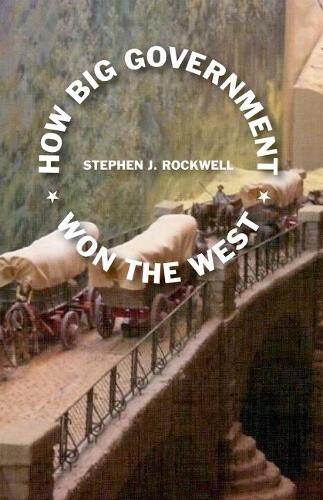
How Big Government Won the West
(Paperback)
Publishing Details
How Big Government Won the West
By (Author) Stephen Rockwell
BookBaby
BookBaby
5th November 2015
United States
Classifications
General
Non Fiction
Physical Properties
Paperback
40
Width 139mm, Height 215mm, Spine 6mm
68g
Description
This essay argues that big government began in America's earliest days-- despite our founding myth of small government and limited federal activity. The essay addresses the federal government's indispensable role in land acquisition, its regulation of the fur trade, and its roles in managing defense, trade, and social policies. Complementing a wave of new scholarship, "How Big Government Won the West" offers a brief and compelling look at governance in the republic's first century. Rockwell addresses numerous examples of federal government activity in the late eighteenth and nineteenth centuries: government-run trading houses designed to drive American Indians into debt, thus forcing land cessions; the federal response to the Whiskey Rebellion; the cost of the Louisiana Purchase; the construction of the National Road; the building of seacoast fortifications; the tragedy of Indian Removal; the terror of the Fugitive Slave Act of 1850; and federal initiatives addressing health, welfare, veterans' pensions, the mails, and disaster relief.
"How Big Government Won the West" is designed for use in college and high school classrooms, where it can serve as a basis for debate over the scope and influence of the federal government in the nineteenth century.
Author Bio
Stephen J. Rockwell is Professor of Political Science at St. Joseph's College, New York, where he is also Associate Chair of the Department of Social Sciences, Prelaw Advisor, and Coordinator of the American Studies program. Previously, he was an assistant professor at the University of Michigan-Flint, and a Senior Research Analyst at the Brookings Institution in Washington, DC.
